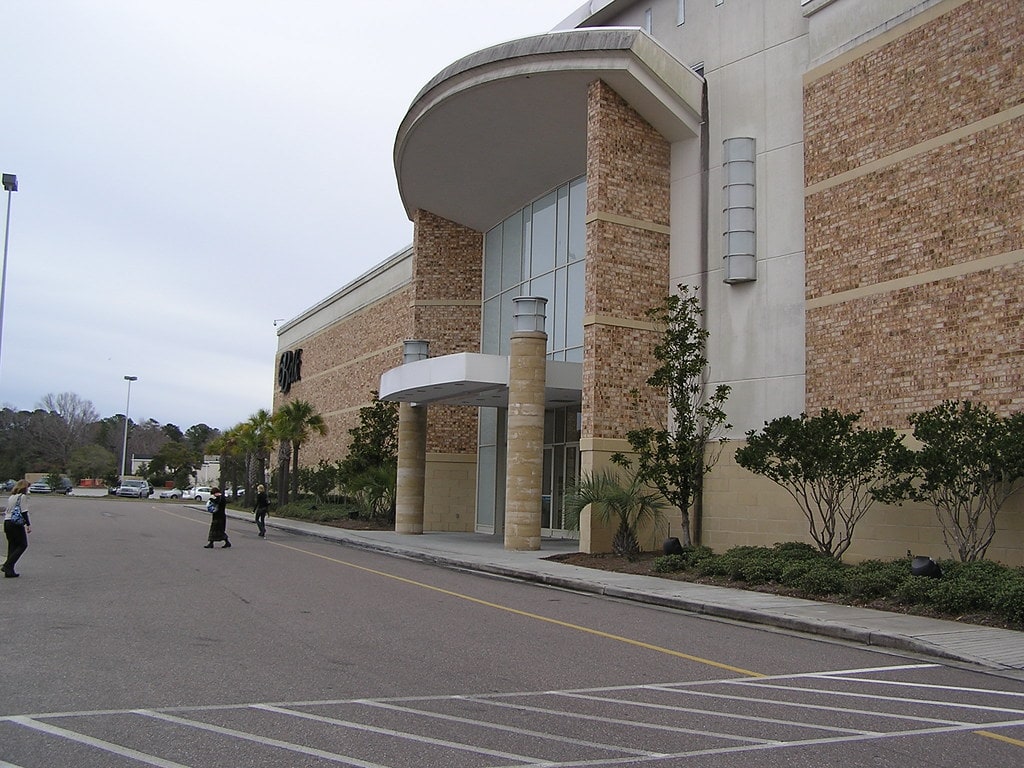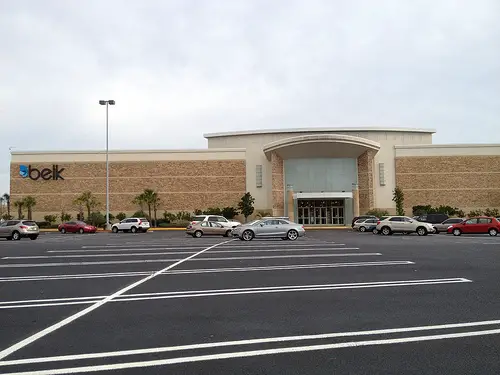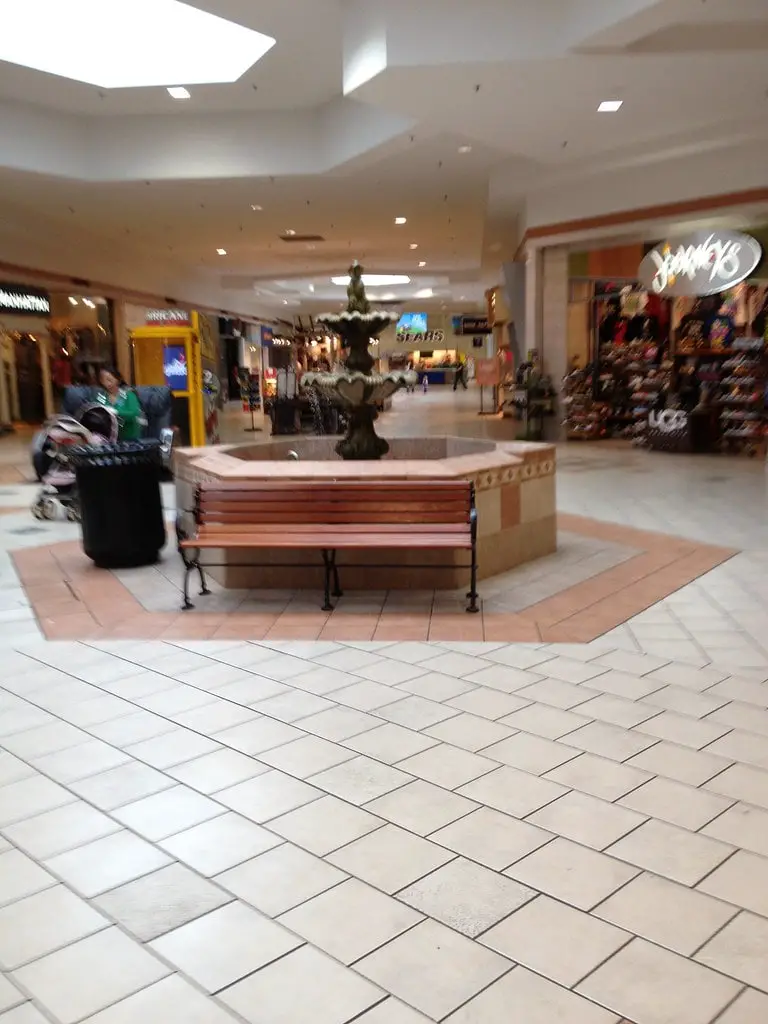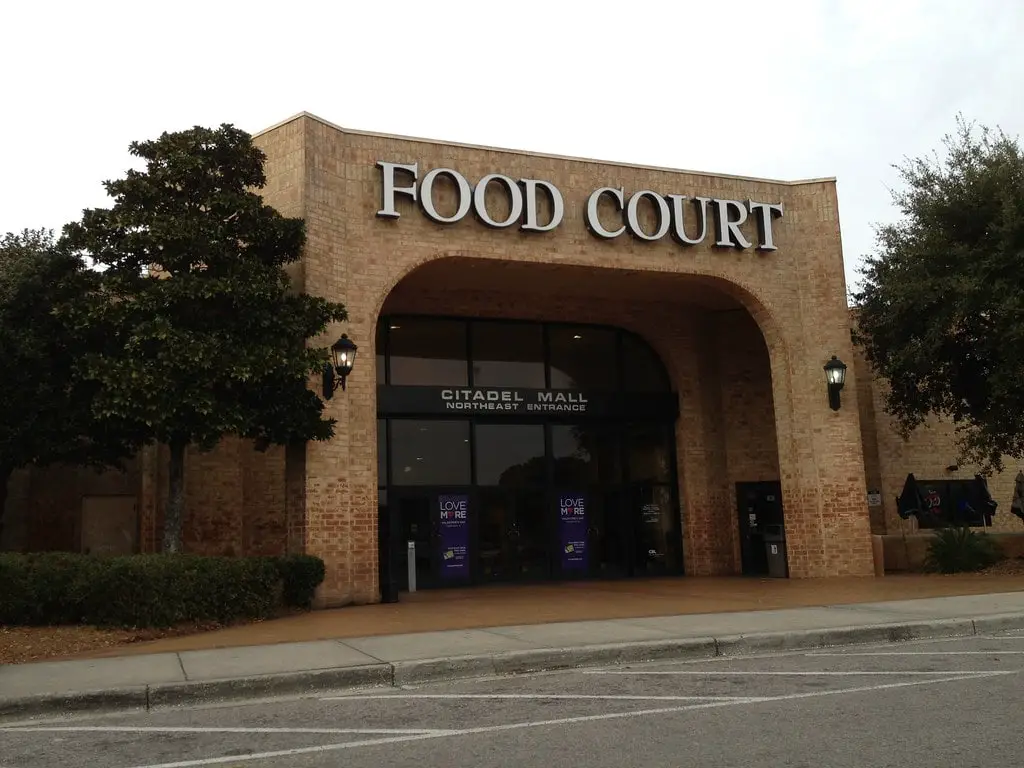The Dawn of Retail Revolution: Citadel Mall’s Opening Saga
The Birth of a Shopping Destination
On a warm summer day, July 29, 1981, Charleston, South Carolina, witnessed the birth of a new retail era with the opening of Citadel Mall.
Developed by the renowned national mall developer Jacobs, Visconsi & Jacobs from Cleveland, Ohio, this mall wasn’t merely another shopping center; it was envisioned as a regional shopping haven.
Nestled at the bustling intersection of Sam Rittenberg Boulevard and Savannah Highway, Citadel Mall stood as a beacon of commerce and entertainment for the West Ashley suburb.
It marked a significant milestone in Charleston’s retail landscape, bringing together over 100 stores and services under one roof.
Anchoring the Retail Landscape
The mall’s retail strength was anchored firmly by three major department stores: Sears, Belk, and Thalhimer’s.
Each store brought its unique flair and customer base to the mall. Sears, a household name in American retail, offered a wide range of products, from clothing to appliances, attracting families and individuals alike.
Belk, known for its Southern charm and a wide selection of brands, catered to a diverse clientele. Meanwhile, Thalhimer’s, an upscale department store, added a touch of luxury to the mall’s offerings.
Together, these anchor tenants laid a strong foundation for Citadel Mall’s popularity, drawing shoppers across the region.
A Constant Evolution
From its inception, Citadel Mall was more than just a shopping space; it was a vibrant community hub.
It quickly became one of the things to do in Charleston, SC, offering a unique shopping experience that combined convenience with variety.
The mall’s diverse tenant mix, from fashion boutiques to electronics stores, catered to every need and desire.
Citadel Mall continued to evolve as the years passed, reflecting its patrons’ changing trends and preferences.
This constant evolution helped the mall maintain relevance in the ever-changing retail landscape for years, marking it a cornerstone of Charleston’s commercial sector.
Retail Evolution: Citadel Mall’s Anchor Tenants Over the Years
The Changing Faces of Anchor Tenants
Citadel Mall witnessed a dynamic shift in its anchor tenants as the years unfolded, reflecting the evolving retail trends.
1992, a significant change occurred when Thalhimer’s made way for Dillard’s, introducing fresh retail energy to the mall.
Dillard’s, known for its wide range of fashion and home goods, moved into a newly constructed larger building in 1994, further expanding the mall’s allure.
The vacated space didn’t stay empty for long; JCPenney, synonymous with quality and affordability in department store shopping, took over and operated until 2001, when it was sold to Target.

Transformations and Transitions
The retail transformations didn’t stop there. Belk, another original anchor, stepped up its game by moving into a larger, two-story building, signaling its commitment to growth and customer experience.
In a twist of retail fate, Belk’s old building was sold to Parisian in 2000. However, when Belk acquired Parisian in 2006, the Parisian store at Citadel Mall closed, and JCPenney returned in 2007 for the decade, adding another chapter to the mall’s retail story.
These transitions reshaped the mall’s physical landscape and diversified the shopping experiences available to its patrons.
A New Era of Retail and Entertainment
The departure of Sears in 2018 marked the end of an era and the beginning of a new chapter for Citadel Mall.
The space previously occupied by Sears transformed into something entirely different — a production facility for HBO’s television series “The Righteous Gemstones.”
This unique transition from retail to entertainment provided an unexpected yet intriguing twist to the mall’s narrative.
Today, Citadel Mall’s anchor tenants include stalwarts like Belk, Target, and Dillard’s, alongside unconventional anchors like Mixed Bag Productions (the HBO facility) and the Medical University of South Carolina, showcasing the mall’s adaptability to the changing times.
Navigating Through Financial Tides: Citadel Mall’s Ownership Odyssey
Facing Financial Hurdles
In the life of any commercial giant, financial challenges are inevitable, and Citadel Mall was no exception.
2013 marked a pivotal moment in the mall’s history when it plunged into foreclosure. This financial hurdle came after CBL & Associates Properties, the then-owner, defaulted on mortgage payments.
The mall was controlled by a holding company formed by the lender, 2070 Sam Rittenberg Boulevard Holdings LLC.
This period of uncertainty shadowed the mall’s future, raising questions about its direction and sustainability.

A Carousel of Ownership
The mall’s journey through various owners is as intriguing as its retail evolution. After the foreclosure episode, the company, led by Richard C. Davis, acquired the mall for $17 million.
Davis, known for his role in the reality TV series “Flip This House,” envisioned rejuvenating the mall’s tenant mix and adding entertainment and mixed-use elements.
However, the ownership changes didn’t stop there; in January 2023, Singerman Real Estate of Chicago stepped in as the new proprietor of Citadel Mall.
The Impact of Ownership Changes
Each shift in ownership brought its own set of challenges and opportunities. The various owners undertook efforts to revitalize the mall, striving to adapt it to the evolving retail landscape.
These stewardship changes influenced the mall’s physical attributes and its place in the community.
As new owners took the helm, they infused the mall with fresh ideas and strategies to restore its former glory and relevance in a rapidly changing retail world.
Reinventing Spaces: Citadel Mall’s Path to Revitalization
Embarking on Redevelopment
In the quest to remain relevant in the rapidly evolving retail landscape, Citadel Mall embarked on ambitious redevelopment plans.
Part of these plans aligned with the 2014 West Ashley Strategic Plan, envisioning the mall’s transformation into a mixed-use, pedestrian-oriented center.
This vision aimed to shift from traditional interior retail spaces to an outdoor Main Street-style shopping experience, reflecting a modern approach to consumer preferences and community engagement.
Such a transformation promised to revitalize the mall and redefine the shopping experience for Charleston residents and visitors.

Recent Renovations and Additions
The mall’s journey towards revitalization included several recent renovations. These updates were more than just cosmetic changes; they were strategic moves to enhance the mall’s appeal and functionality.
The introduction of new stores, the upgrading of existing spaces, and the addition of diverse amenities all played a crucial role in this revitalization process.
Each renovation was a step towards creating a more inviting and vibrant shopping and entertainment destination, in line with the expectations of today’s consumers.
Looking Towards the Future
Despite these efforts, the future of Citadel Mall remains a subject of speculation and anticipation.
With the latest change in ownership and management, there’s a sense of curiosity about the mall’s direction.
Will the new owners continue the path set by their predecessors, or will they introduce a new vision for the mall?
As Citadel Mall stands at this crossroads, it holds the potential to either reclaim its former glory or chart an entirely new course in the ever-evolving world of retail and entertainment.
Citadel Mall in the Spotlight: A Journey Beyond Retail
Featuring in Popular Culture
Citadel Mall has found its way into popular culture. A notable highlight was its feature in an episode of The Food Network’s “Food Court Wars” in June 2013.
Hosted by celebrity chef Tyler Florence, the show brought national attention to the mall, showcasing its diverse food offerings.
This episode was a moment of fame for the mall and a testament to its role as a community and entertainment hub far beyond retail.

From Retail Space to Film Set
The transformation of the former Sears space in Citadel Mall into a production facility for HBO’s television series “The Righteous Gemstones” is a fascinating tale of retail space repurposing.
This show, filmed in the Charleston area, including at the Citadel Mall, turned the former retail space into the Gemstone Prayer Center, a key location featured prominently in the series’ first two seasons.
The series, which revolves around a world-famous yet dysfunctional family of televangelists, found a fitting backdrop in the transformed space.
The mall’s transformation for the show included altering the exterior of the former Sears store to align with the visual requirements of the series.
This unique utilization of mall space provided a practical filming location and added a new dimension to the mall’s identity, intertwining it with the world of television and pop culture.
Envisioning the Future: Citadel Mall’s Prospective Path
Current Challenges and Opportunities
Citadel Mall today stands at a crucial juncture, facing contemporary retail challenges. The rise of online shopping and changing consumer habits have posed significant hurdles, necessitating a rethink of the traditional mall model.
However, these challenges also present opportunities for innovation and reinvention. The mall’s future depends on how effectively it adapts to these changing dynamics while remaining an integral part of the Charleston community.
Potential for Redevelopment and Transformation
The prospects of redevelopment loom large in the mall’s future. With new ownership, there’s anticipation about transforming the mall into a vibrant mixed-use space, in line with modern consumer preferences.
The idea is to create an environment that blends retail with leisure, dining, and entertainment, making the mall a destination for more than just shopping.
This transformation could be pivotal in reestablishing the mall as a central, lively hub in the West Ashley area.
A Community-Centric Approach
In contemplating the future, it’s crucial to consider the mall’s role in the community. The hope is to see Citadel Mall evolve into a space that resonates with the locals, offering experiences and services that align with their needs and aspirations.
The mall’s ability to reinvent itself while staying true to the community’s spirit will be key to its survival and prosperity in the years to come.
Reflecting on Citadel Mall’s Journey
As we look back on the storied history of Citadel Mall, its evolution from a bustling retail center to its current state is intriguing and reflective of broader retail trends.
The mall has witnessed significant transformations, from changes in anchor tenants to shifts in ownership, each shaping its identity.
Its resilience in the face of financial difficulties and its adaptability to serve as a community hub and an entertainment venue speak volumes about its importance in Charleston.
As Citadel Mall stands today, its uncertain future holds potential for reinvention, promising to continue its legacy as a key part of Charleston’s commercial and community life.
